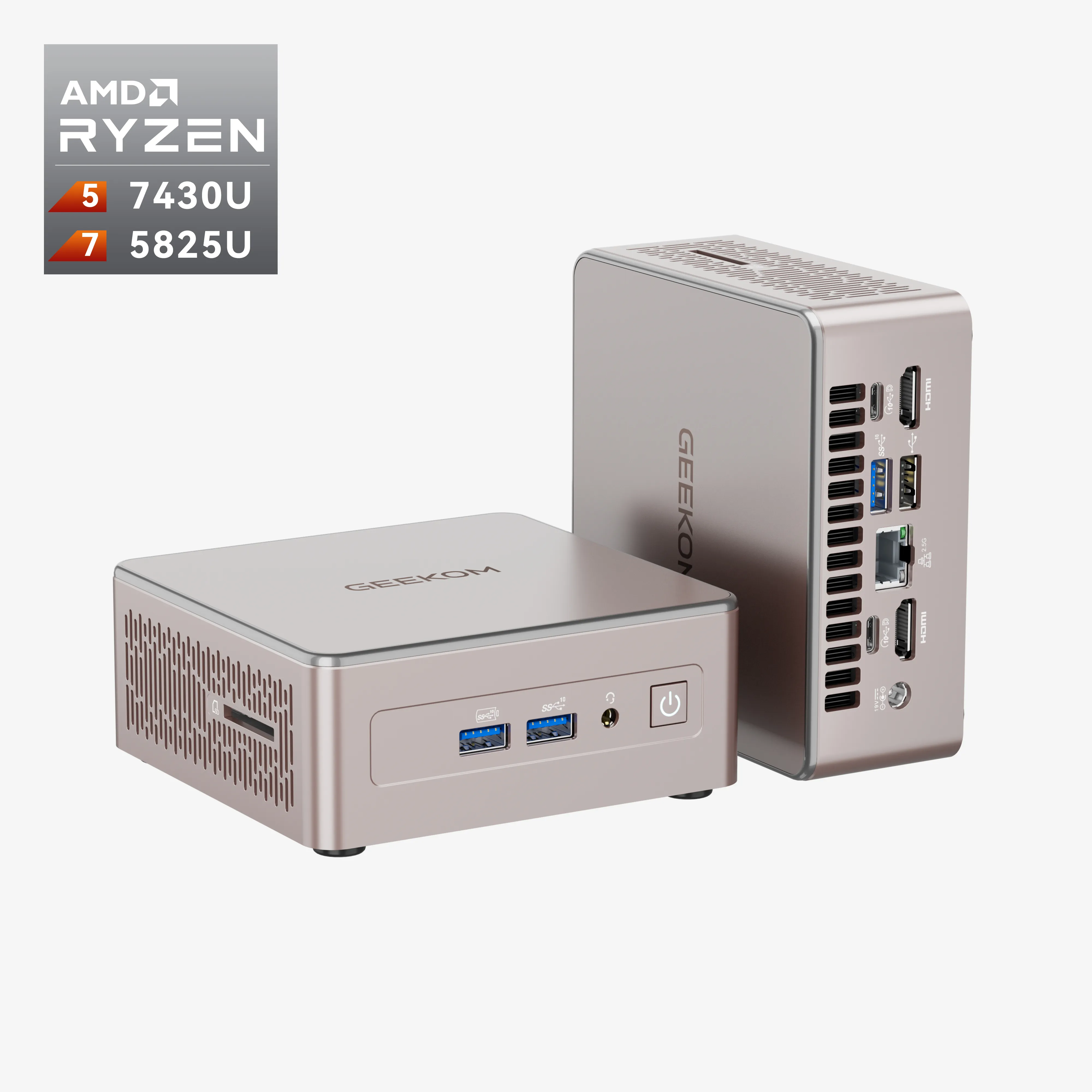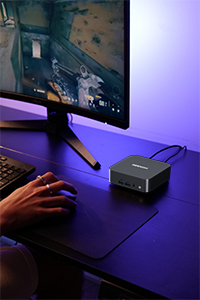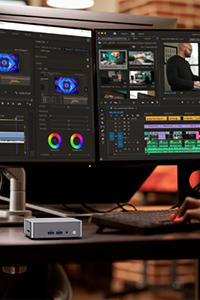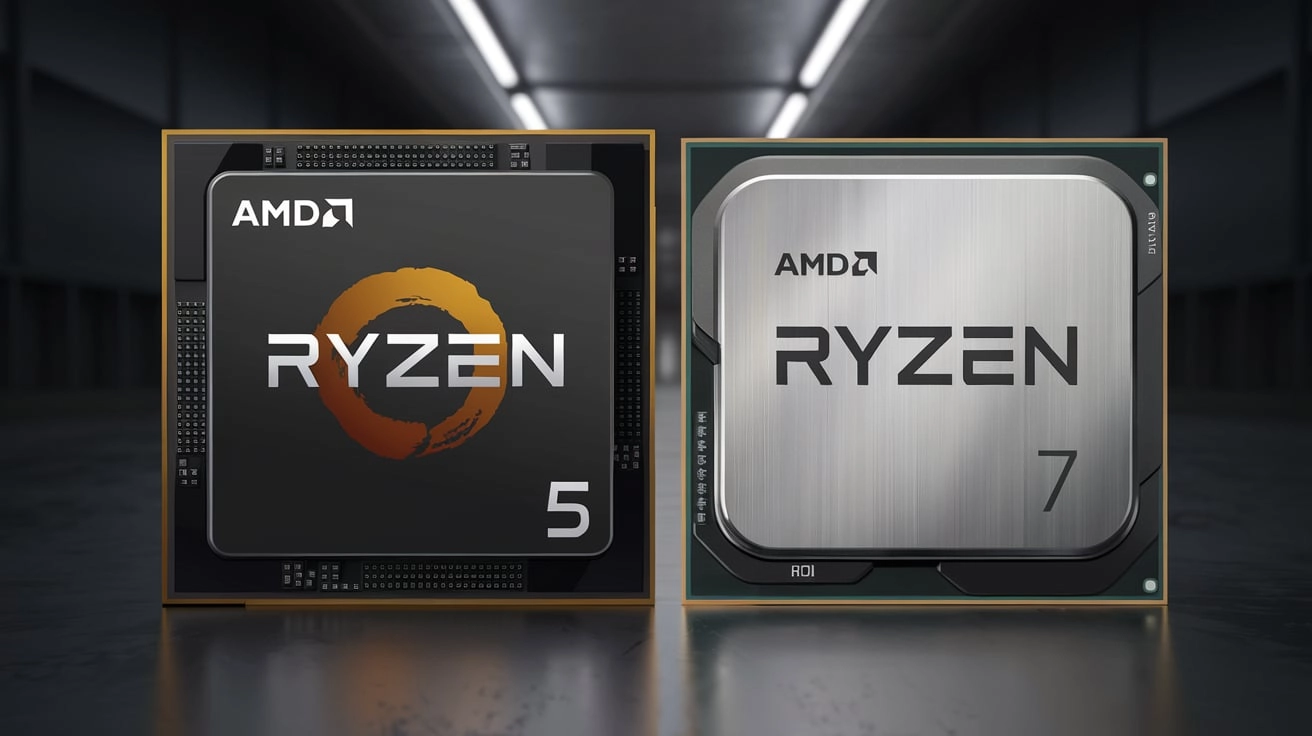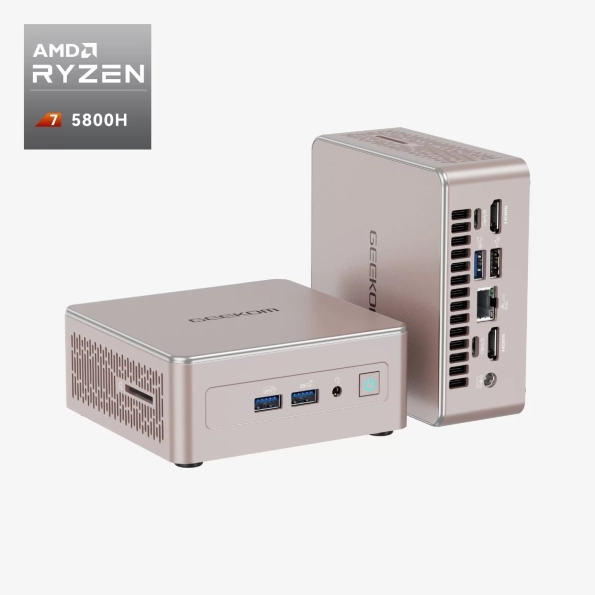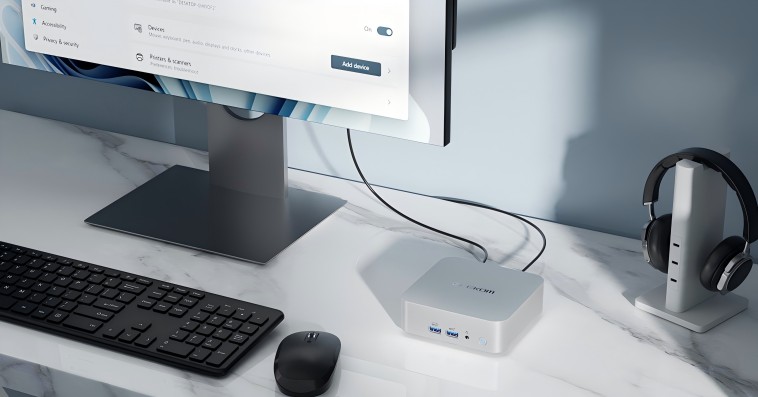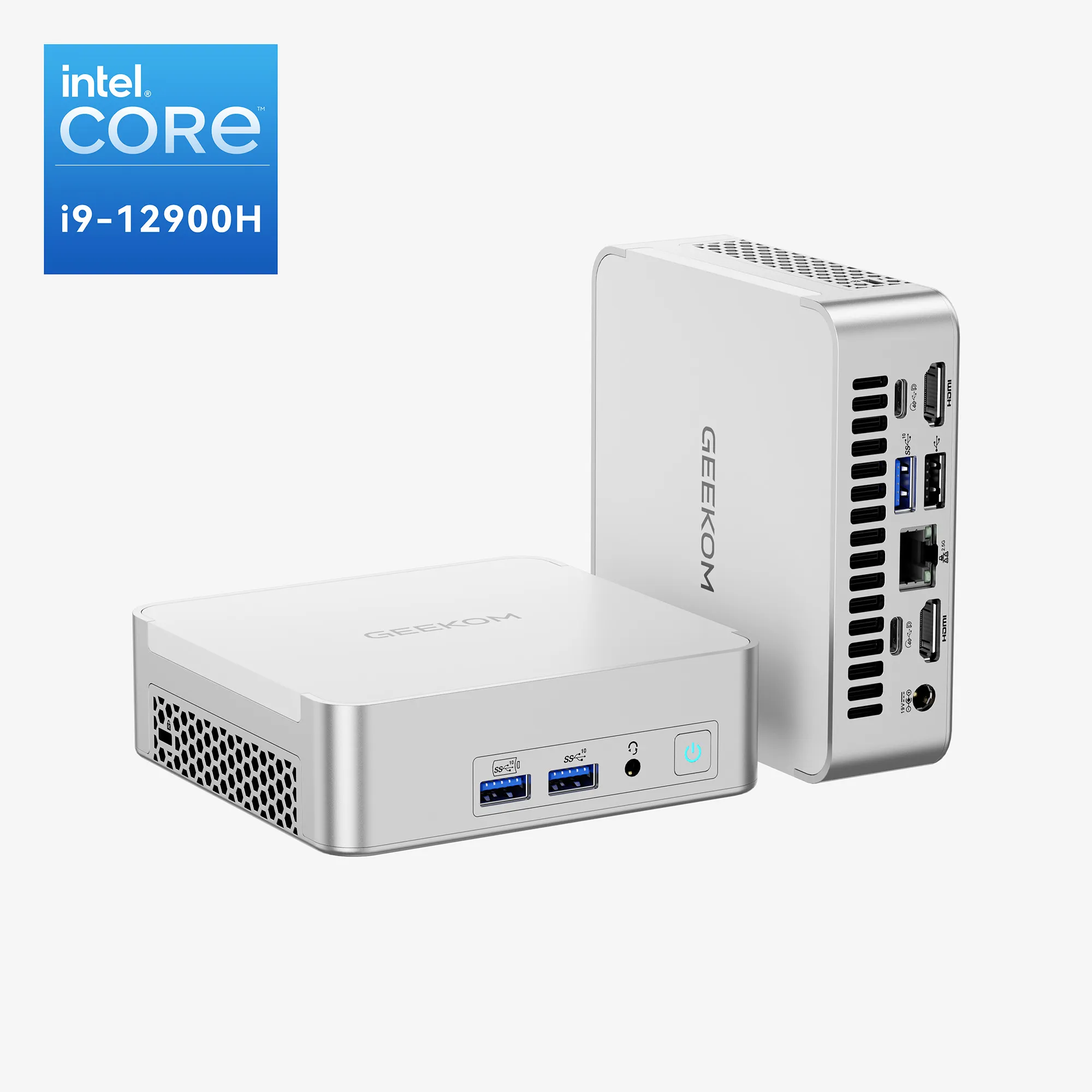Introduction
The AMD Ryzen series has brought significant advancements into the CPU market by introducing a plethora of processors that will satisfy varying needs and budgets. Ryzen 5 and Ryzen 7 series take the topmost preference for personal and business-oriented usage. With great performance, superb power management criteria, and a moderate price set within a crowded CPU market, they are one of the most appealing choices around.
In this article, I will conduct a comparative study of the AMD Ryzen 5 Series and Ryzen 7 Series concerning the performance of the Ryzen 5 7530U series and the Ryzen 7 5825U series based on specifications, benchmarks, and ratios of cost-to-performance. With this material, we will present a consequent view of comparative in-depth analysis which shall help any interested party in choosing the correct CPU for the presentation. Moreover, if you are a gamer, content creator, or anyone who needs a reliable computer to accomplish daily tasks, knowing the difference between these two AMD Ryzen series will provide you with good grounds to base your selection on decision-making.
Comparison of AMD Ryzen 5 vs Ryzen 7
Key Specifications
| Feature | AMD Ryzen 5 7530U | AMD Ryzen 7 5825U |
| Cores / Threads | 6 / 12 | 8 / 16 |
| Base Clock | 2.0 GHz | 2.0 GHz |
| Max Boost Clock | 4.5 GHz | 4.5 GHz |
| Cache | 16 MB L3 | 16 MB L3 |
| TDP | 15W | 15W |
| Lithography | TSMC 7nm | TSMC 7nm |
| Integrated Graphics | Radeon Vega 8 | Radeon Vega 8 |
| Memory Support | DDR4-3200, LPDDR4x-4266 | DDR4-3200, LPDDR4x-4266 |
When the AMD Ryzen 5 and Ryzen 7 series are compared, several features stand out and weigh heavily on their performance and suitability for various tasks. Core and thread count, clock speeds, cache size, thermal design power (TDP), and integrated graphics make up the critical parameters to consider.
In terms of core and thread counts, to separate the two, Ryzen 5 7530U offers 6 cores and 12 threads, and Ryzen 7 5825U brings with it 8 cores and 16 threads-which is an important differentiation when performance with multi-threading operations is considered. The extra cores and threads present with Ryzen 7 allow it to run applications that require heavy processing like video editing and 3D rendering much faster and with better efficiency than its forbearers. In comparison, Ryzen 5, although really powerful, could exhibit slight letdowns in being bathed heavily with multi-threaded operations.
About clock speeds, which include both the base and boost clocks, the difference is trivial at times. Both the Ryzen 5 7530U and Ryzen 7 5825U feature similar base clocks of 2.0 GHz, with boosts to 4.5 GHz. Therefore, they should have similar performance levels for single-threaded workloads such as web browsing and office applications. The Ryzen 7, however, will have much higher performance running multiple threads in multi-thread workloads.
Cache size affects performance, especially during data processing in applications that involve large datasets. Both CPUs have 16 MB L3 cache, allowing for faster data access and greater efficiency. This similarity means that you probably won’t see many performance differences in your day-to-day tasks. However, with a higher core count combined with its cache, the Ryzen 7 can provide better performance in resource-hogging applications.
The whole thing is of importance in mobile systems where power efficiency and appropriate dissipation of the heat are both paramount regarding TDP. Both CPUs have a TDP of 15W, making them optimal for thin and lightweight laptops, with equally satisfying performance and battery life. Sustained high performance, however, can depend on the cooling solution in consideration.
Both CPUs use integrated graphics. For the most part, that is good news. Both have integrated Radeon Vega 8 graphics performance suited for light gaming and multimedia tasks. Ultimately, the CPUs could suit casual gamers without the addition of discrete graphics cards. To provide any meaningful frame rates or enable more serious graphics work, you would be looking at the addition of a graphics card, and such a choice between Ryzen 5 and Ryzen 7 would become weighted towards one over the other depending on performance.
Ryzen 5 7530U would be best suited for heavy web browsing, running applications for light gaming, and office duties, tending towards profit with not much loss on budget. In stark contrast, a more productive multi-threaded performance comes from a Ryzen 7 5825U for video editing, 3D rendering, or virtual machines.
In summary, the Ryzen 5 7530U is ideal for general productivity and light multimedia tasks, offering excellent value for everyday use. The Ryzen 7 5825U, with its higher core and thread count, is better suited for demanding applications and professional workloads, providing superior performance for users needing more processing power.
Difference Between the AMD Ryzen 5 and Ryzen 7
Performance Benchmarks
To provide a clear comparison, let’s look at some benchmark scores for these processors:
| Benchmark | AMD Ryzen 5 7530U | AMD Ryzen 7 5825U |
| Cinebench R23 (Single-Core) | 1,200 | 1,300 |
| Cinebench R23 (Multi-Core) | 6,000 | 7,500 |
| Geekbench 5 (Single-Core) | 1,100 | 1,200 |
| Geekbench 5 (Multi-Core) | 5,500 | 7,200 |
| PassMark (Single-Core) | 2,200 | 2,400 |
| PassMark (Multi-Core) | 10,000 | 12,500 |
Concerning clear differentiation between the AMD Ryzen 5 7530U and Ryzen 7 5825U, I have put together some benchmark scores that show performance in varied scenarios. The benchmarks cover tests designed according to the results in both single-core and multi-core tasks, which give an overview of the strengths and possible weaknesses of each respective processor.
In these single-core performance benchmarks, Cinebench R23, Geekbench 5, and PassMark show that the two CPUs have very close performance; indeed, the Ryzen 7 5825U leads very slightly. As an example, in Cinebench R23, single-core, the Ryzen 5 7530U scores around 1,200 points, while the Ryzen 7 5825U is close to 1,300 points. This marginal difference means that both CPUs are quite capable of such tasks as web browsing and office applications relying on single-threaded performance, with Ryzen 7 showing marginally better performance.
Multicore is where the differences become widest, with the Ryzen 5 7530U getting around 6,000 points in Cinebench R23 multi-core, while the Ryzen 7 5825U scores about 7,500 points. Likewise, in Geekbench 5 multicore, the Ryzen 5 scores around 5,500, while the Ryzen 7 gets around 7,200. The higher scores of the Ryzen 7 in this area reveal its advantage in working on multi-threaded tasks, making it a good choice for demanding applications like video editing, 3D rendering, and multitasking.
In summary, while both processors perform well in single-core benchmarking tests, evidence from the benchmarking tests showed that the Ryzen 7 5825U is better in multicore tasks because it has a higher core and thread count. This makes the Ryzen 7 a better choice for users who require excellent performance for heavy workloads, while the Ryzen 5 strikes an excellent balance of performance and value for ordinary tasks and light multitasking.
Gaming Performance
To compare the gaming performance of the AMD Ryzen 5 7530U and Ryzen 7 5825U, let’s look at some benchmark scores in popular games. These benchmarks help illustrate how each CPU handles gaming workloads, providing insights into their suitability for gaming.
| Game | Resolution | AMD Ryzen 5 7530U (with integrated Radeon Vega 8) | AMD Ryzen 7 5825U (with integrated Radeon Vega 8) |
| Shadow of the Tomb Raider | 1080p | 30 FPS | 35 FPS |
| Fortnite | 1080p | 45 FPS | 50 FPS |
| Civilization VI | 1080p | 35 FPS | 40 FPS |
| GTA V | 1080p | 28 FPS | 32 FPS |
| Overwatch | 1080p | 50 FPS | 55 FPS |
Even though both CPUs can run popular games at 1080p on integrated graphics, the performance of the Ryzen 7 5825U is superior, earning it a position as a compatible choice for gamers seeking enough frame rate and a smooth experience, specifically for those demanding or competitive gaming scenarios. The Ryzen 5 7530U still serves quite well for more relaxed titles and casual gaming in offering decent performance for the dollar.
Cost Vs. Performance
When evaluating the cost versus performance of the AMD Ryzen 5 7530U and Ryzen 7 5825U, it’s important to consider not only the raw performance metrics but also the price difference and the value each processor offers for its intended use.
Pricing Overview
| CPU Model | Approximate Price (as of 2024) |
| AMD Ryzen 5 7530U | $300 – $350 |
| AMD Ryzen 7 5825U | $400 – $450 |
Value Proposition
Ranging between $300 and $350, AMD Ryzen 5 7530U is a perfect option for someone who is on a budget yet requires decent performance for basic tasks and light gaming. The 6 cores and 12 threads it offers will do wonders for general productivity, internet browsing, and office applications. Integrated Radeon Vega 8 graphics should suit anyone for light gaming and multimedia usage, so the Ryzen 5 7530U is for any versatile task user.
AMD Ryzen 7 5825U, on the other hand, incurs a bit more, around $100-150. 5825U-8 cores and 16 threads mean real performance likelihood of high multi-threaded performance; hence this makes it suitable for applications with higher needs like video editing, 3D rendering, and heavy multitasking. Yet, as with its general performance, the integrated Radeon Vega 8 graphics in the Ryzen 7 also deliver a slight advantage in terms of gaming performance, in terms of smooth gameplay and higher framerates in more demanding titles.
Of course, the best solution is to buy a mini PC with a Ryzen 7 CPU, which offers the best value for money.
- AMD Ryzen™ 7 5825U Processor
- Radeon™ Vega 8 Graphics
- Dual-channel DDR4-3200MT/s, up to 64 GB
- PCIe Gen 3 x 4 NVMe/SATA SSD, up to 2TB
- Wi-Fi 6 and Bluetooth® 5.2
- Support Quad Display
Even though AMD 5825U is a bit pricier, the price is worth it for users who want that extra processing power and multi-threaded performance. Pros and power users who utilize elaborate workflows and/or need robust performance for intensive workloads would find great value in going with the Ryzen 5825U.
Conclusion
In summary, the choice comes down to the kind of work you do and how much money you want to spend. The Ryzen 5 series is a superb choice for day-to-day productivity, light gaming, and other general purposes because it provides a commendable balance between performance and price. With 6 cores and 12 threads, as well as integrated graphics via Radeon Vega 8, the Ryzen 5 series can cater to several purposes without being too expensive.
Conversely, the Ryzen 7 series stands out in favour of users who need higher multi-threaded performance for demanding applications. With 8 cores and 16 threads, while benefiting somewhat from gaming, Ryzen 7 is a better choice for content creators, professionals, and moderate-level gaming who require more processing power. If extra features and future upgradeability are what you are looking for, the extra money to put into the Ryzen 7 is certainly worth it.
Ultimately, with excellent performance at their respective price points, Ryzen 5 and 7 both guarantee you will get a powerful and efficient CPU that caters to your needs, irrespective of your processor choice.




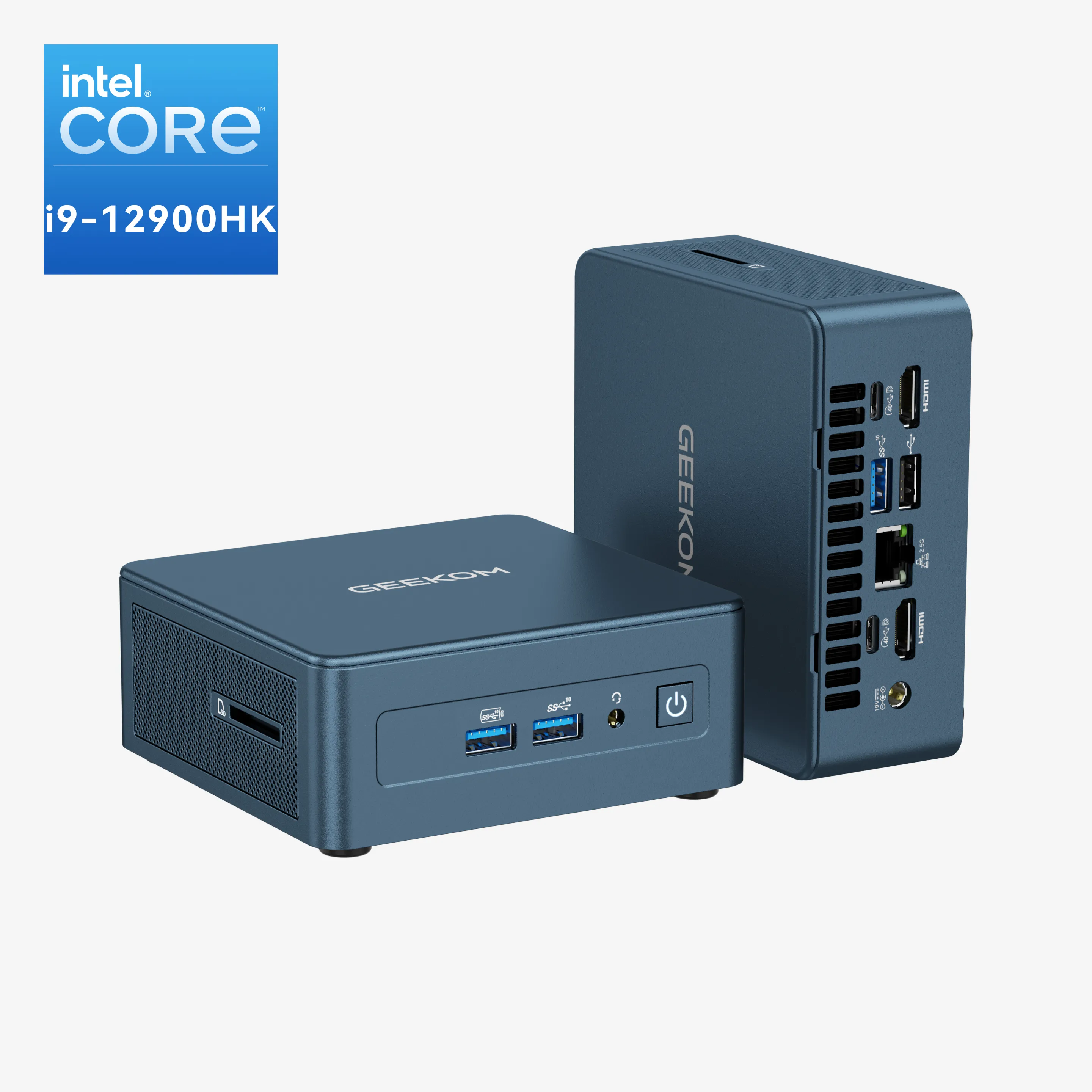

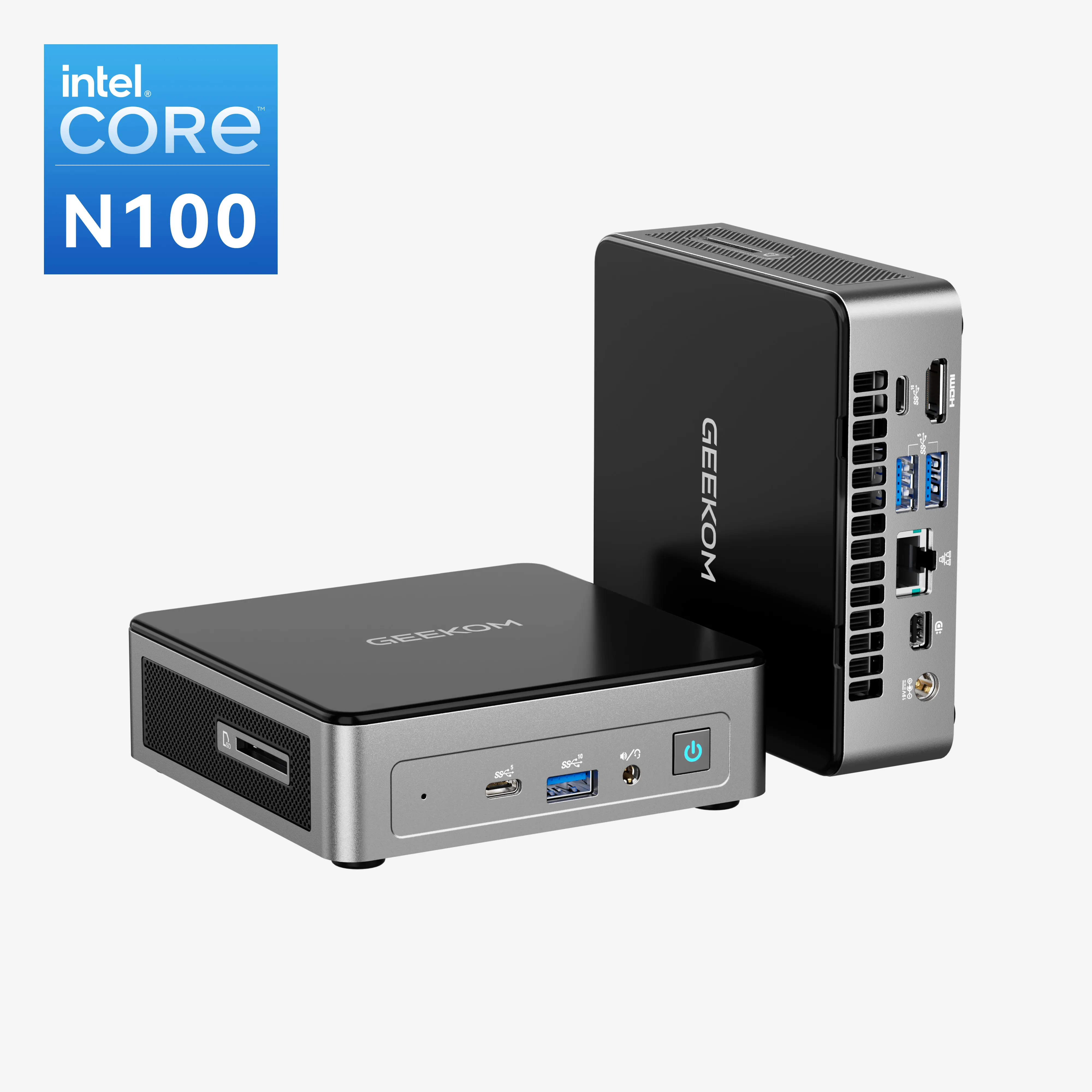
 Flash Sale
Flash Sale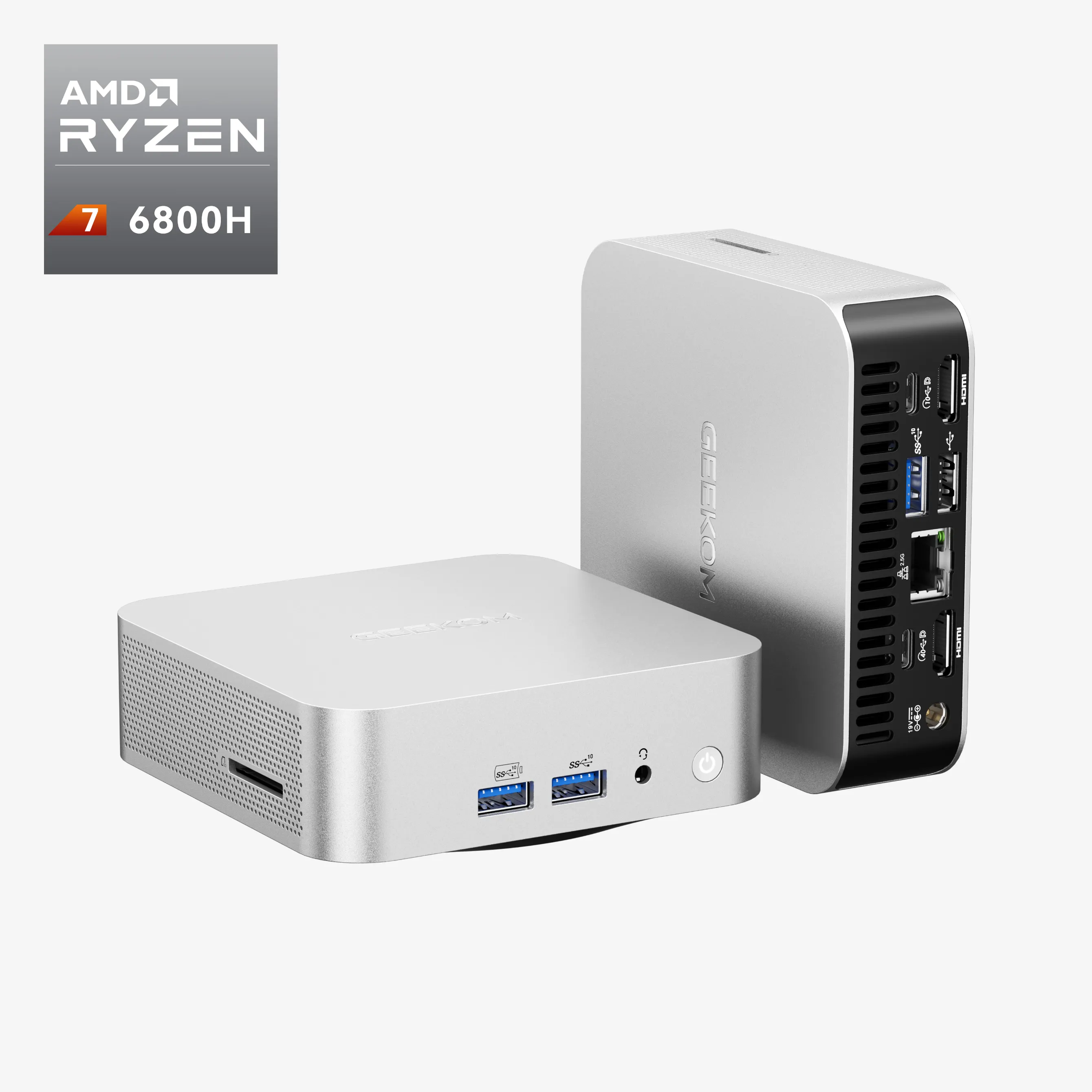
 NEW ARRIVAL
NEW ARRIVAL
